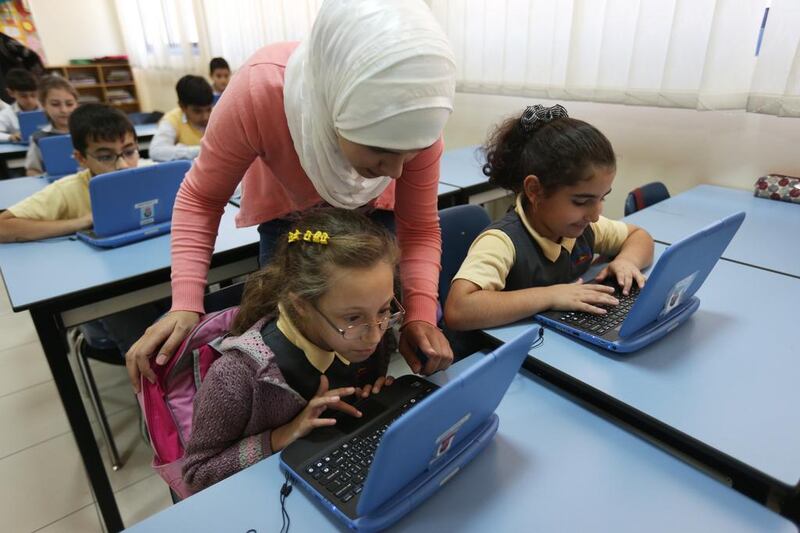ABU DHABI // Teachers across the country will be subject to a uniform licensing system set to be introduced early next year, the National Qualifications Authority says.
The system, which will standardise qualifications for Emirati and expatriate teachers in private and public schools, is now being finalised, the authority said.
“We’ll be introducing teacher licensing soon all over, hopefully in the beginning of next year,” said Marwan Al Salawah, assistant secretary at the Ministry of Education.
The system is being developed by the NQA, the ministry, Abu Dhabi Education Council, Dubai’s Knowledge and Human Development Authority and the Abu Dhabi Centre for Technical and Vocational Education Training.
Mr Al Salawah has said that under the new rules teachers may be required to take a training course, pass an exam or obtain a federal licence to work in the country.
But the final details of how the licensing system will be introduced will not be confirmed until next year.
“Such standards will be applied to Emirati and expatriate teachers alike at public and private schools,” said Dr Thani Al Mehairi, director general of the NQA.
“The committee is now finalising the licensing standards and will soon state all the details relevant to the first implementation stage.”
The NQA is also working with the ministry on a teaching career handbook that will outline employment categories and knowledge and skills required for each level of education, said Dr Al Mehairi.
He said it was hoped the guidebook would encourage more Emiratis to take up teaching as a career.
“Any Emirati willing to take teaching as his or her career shall be aware of all the opportunities to be available within the teaching pathway,” he said.
“All of the incentives and promotions shall be clearly stated.
“Yet, the handbook does not target only UAE nationals, but all those who are in or interested in joining the teaching career inside the UAE.”
The guidebook will outline “occupational criteria” that will help to identify the best teaching professionals, Dr Al Mehairi said.
“The committee already approved its work plan and the expected timeframe, which has taken into account the disparity that currently exists in the criteria for assessing and licensing teachers at the local and national levels, and the size of the workforce in the education and training sector,” he said.
“So NQA is part of this big national endeavour to promote teaching careers and make it more attractive to all citizens and residents in the UAE.”
The National Committee for the Licensure of Teachers, chaired by the NQA, was established last year to develop a UAE-wide policy.
A two-day education conference at Emirates Centre for Strategic Studies and Research this week focused on the challenges of attracting and retaining Emirati teachers.
Those who attended praised efforts by the national licensing committee to establish the system.
“There are important concepts in teachers that have to be evaluated and the licensing is a big measure of quality assurance,” said Dr Mohamed Baniyas, vice chancellor of the Emirates College for Advanced Education, which trains teachers.
“With licensing, it reassures that teachers have the initial, proper qualification.”
Dr Baniyas said the system would identify the professional skills and standards required of teachers, and help to promote their continued education.
“One important aspect in any profession is not to stop at the level you graduated from, but to continue the learning forever,” he said.
“So that will be very important. Through licensing you can do the professional development as well.”
rpennington@thenational.ae






